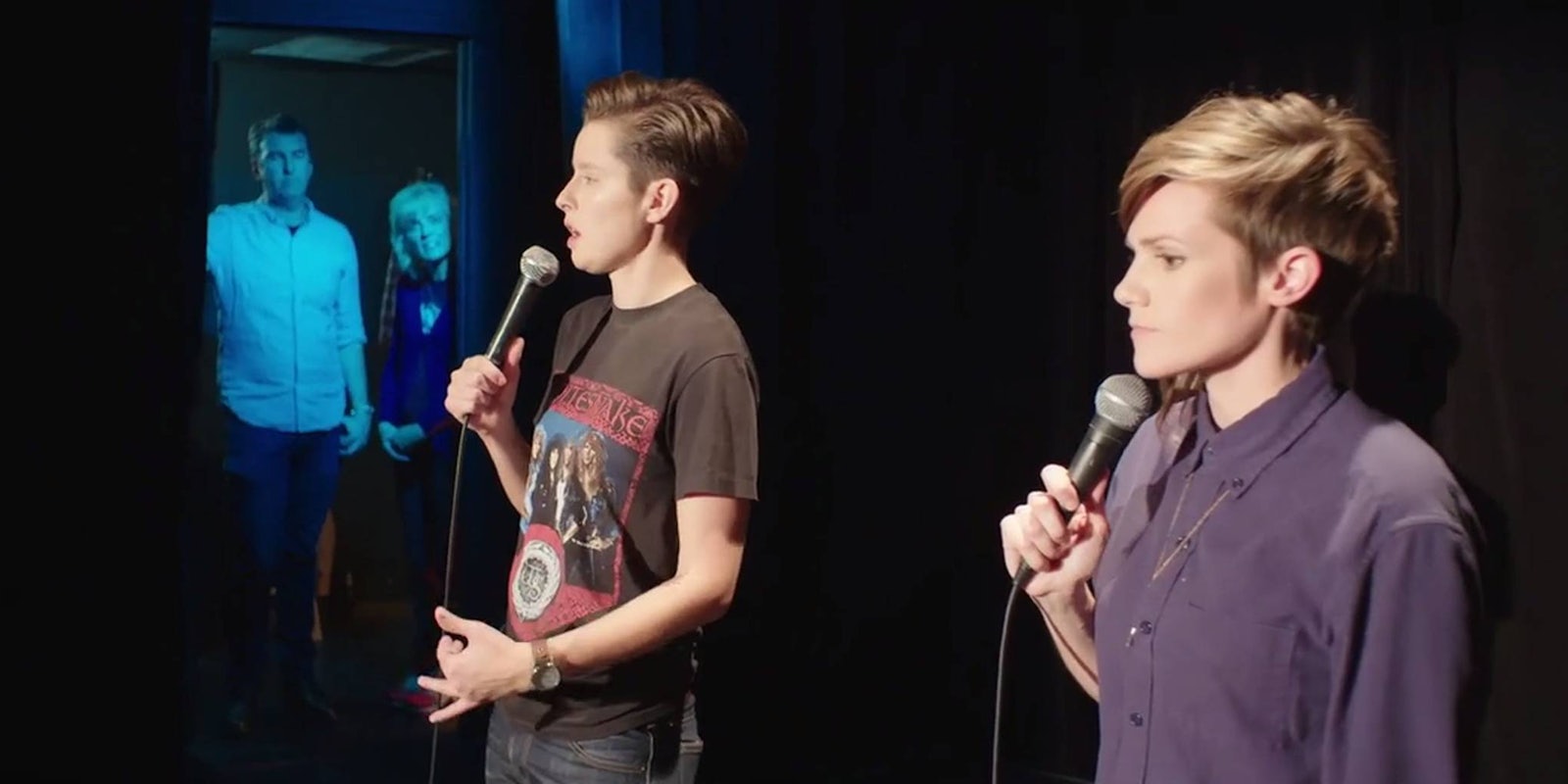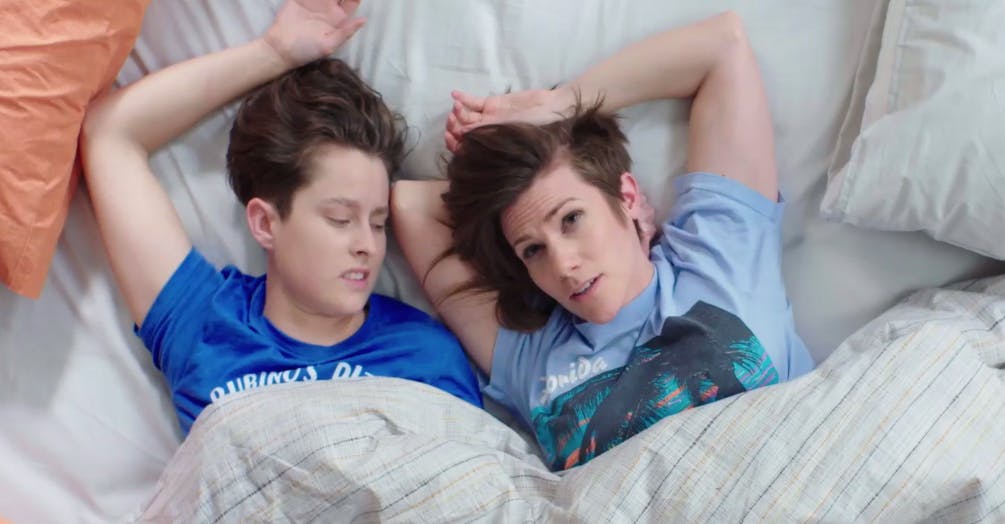Since debuting in January, NBC’s streaming comedy site Seeso has delivered some inspired series from across the pond and roped in some big names, but it didn’t really have a brand-defining show. Take My Wife finally feels like a direct hit.
Cameron Esposito and Rhea Butcher headline this series about two comedians who are in a relationship, live together, and host a show together. Back in March, Esposito told the Daily Dot that this (real) work-life balance is “really challenging because we are a small business and the business is ourselves.”
Take My Wife certainly offers a look at the business of comedy and, as Vulture’s Jesse David Fox points out, it joins a growing number of shows about it: “Now, we’re beginning to treat comedy as a workplace that fuels the drama, while personal relationships are just the color.”
On Hulu’s Difficult People, Julie and Billy’s quest for comedic fame opens up weirder avenues of celebrity worship. On Netflix’s Lady Dynamite, we follow Maria Bamford (who cameos in Take My Wife) as she tries to get back onstage. Standup is a channel into sketch on Inside Amy Schumer. Take My Wife’s episodes reflect the L.A. comedy world: “Punchline,” Applause Break,” “Opener,” “Feature,” Headliner.” Even the title is a riff on a comedy bit.
While the show has gotten Louie and Maron comparisons, that’s only fair in terms of how it depicts conversations between comedians. Take My Wife is about the relationship between two women, and Esposito and Butcher make sure to call out the “bury your gays” trope in episode 2: As they lay in bed post-sex, they discuss how they would be portrayed if they had a TV show, and how queer characters are routinely killed off.
“My point is, I just want us to live,” says Esposito.
It’s a touching moment, and episode 2 is a standout. The action takes place mostly within the confines of a comedy club, with the camera following performers through hallways and onstage a la Birdman. It illuminates the sexism women experience, even from other women: Butcher gets sidelined by Esposito after being labeled as just her girlfriend. Later, a male comedian asks them to explain women’s “rape fantasy” and bristles at being told he can’t use the term “bitchface.” Then a comedian named Bob Herzog (Matt Braunger) tells a rape joke onstage and Butcher and Esposito try to deconstruct why so many men joke about rape. It’s “entertainment,” Esposito dryly concludes.
After the show, Herzog apologizes to Butcher for making light of her trauma, claiming he didn’t know she was a survivor. A chorus of women (and one man) featured in the episode chime in: “I am too.”
https://www.youtube.com/watch?v=ep69729mGYc
While later episodes follow Esposito as she tries to get a movie role, Butcher is the highlight here, as she struggles to not just be the girlfriend and have more control over her comedy career. Their chemistry is believable because it’s real, and that allows for the show’s more vulnerable and funny moments. For instance, when they jinx each other, instead of saying “jinx” they recite Robert Durst’s admission from HBO’s The Jinx.
Their sexuality is never the focus of the show; comedy is the channel into talking about rape jokes, sexual assault, marriage, and representation. We get to see them bomb, doubt themselves, and learn how to live, as comics and people.

